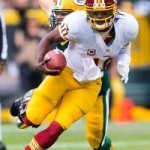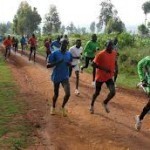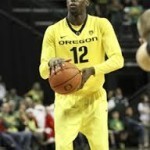Rob Bell's Blog, page 32
June 12, 2014
Injured, Now What?
Injuries suck!
They are one of the toughest things an athlete will handle. Often, athletes do not deal well with injuries either. The way athletes cope with life issues is through their sport. If they are playing well, then everything is okay. However, once an athlete is injured, their source of coping is removed and issues can become severe.
Most athletes that are injured and can’t play, experience some sort of depression. They have lost the most precious part of their identity, so they will grieve and not know how to deal. They will become angry, sad, and feel isolated. They immediately become a lesser part of the team; heck even their rehab is done away from the team practice.
Here are a few things I’ve noticed.
Timing is everything
Injuries cause stress and when it is an important part of the season, it is way more difficult for an athlete to handle. In 2008, future Hall of Fame running back, LaDainian Tomlinson was injured in the playoffs and couldn’t play. He was criticized for how he handled the situation as a leader, but this is often what happens when athletes become hurt during critical parts of the season. They simply don’t know how to cope.
On the other hand, injuries that occur in the off-season, or pre-season can be dealt with more care. Depending on the prognosis, there is more hope that they can return, which can provide a motivating fuel for rehab.
Sport Psychology is needed
Coaches are focused on the team and personal they have, so there isn’t much time to devote to an injured athlete. Thus, Athletic Trainers and Sport Psychology coaches are crucial when an athlete is injured. Athletes on the sidelines are more than willing to talk and this is where real support takes place, helping an athlete cope in healthy ways and channel their focus in positive directions.
Return at 100%

Jeff Hanisch/USA TODAY Sports
RGIII of the Washington Redskins made it public that he was going to return for week 1 of the 2013 NFL season. He did, but he was not healthy. I am not certain he was healthy at all last season and he lost confidence and performed poorly.
Athletes almost always return from their injury too soon. In the athletes mind, they feel close to the same as before the injury, however after returning too fast, they soon discover that they are off. They may feel fine for 9 out of 10 plays, but that one play where they can’t cut, accelerate, or move like before causes doubt. Physically, it causes them to muscle guard and protect the injured area.
Doubt, which has never been there before is suddenly present. Doubt causes slight hesitations, over-thinking, or even trying to do too much. As a result of the doubt and less than stellar play, they lose confidence!
It takes a village. Teammates, coaches, and loved one’s all need to support the athlete to return when completely healthy and in game shape.

 Dr. Rob Bell is a Sport Psychology coach. DRB & Associates based in Indianapolis works with professional athletes & corporate athletes, coaches, and teams building their Mental Toughness. His 2nd book titled The Hinge: The Importance of Mental Toughness
Dr. Rob Bell is a Sport Psychology coach. DRB & Associates based in Indianapolis works with professional athletes & corporate athletes, coaches, and teams building their Mental Toughness. His 2nd book titled The Hinge: The Importance of Mental Toughness was recently released. Follow on twitter @drrobbell or contact drrobbell@drrobbell.com
was recently released. Follow on twitter @drrobbell or contact drrobbell@drrobbell.com
May 29, 2014
Rory & Wozniacki: How romantic break-ups affect performance…
 I’ve seen it dozens of times, an athlete is performing well, and then boom! The break-up happens…
I’ve seen it dozens of times, an athlete is performing well, and then boom! The break-up happens…
Last week, Rory McIlroy called off the engagement with Caroline Wozniacki. In the immediate wake, their performances have taken dramatically different paths. Rory won the European PGA championship after trailing during the last round by seven (7) shots and he is currently in the lead at The Memorial. On the other hand, 13th seed Wozniacki lost in the first round for the first time at the French Open.
Now, there are numerous examples of athletes that performed their best when “life” outside of sport went seriously askew. Brett Favre suddenly lost his father and became locked in on a Monday night game, passing for 399 yards and 4 touchdowns. Recently, PGA Tour winner Robert Garrigus honored his caddy’s father who passed away by shooting an incredible last round 64.
It may seem callous, but what matters in relationships and performance is WHO made the decision and delivered the blow and WHO became the victim?
In relationships, one person usually loves the other more. So, frankly, one’s gender makes no difference in matters of the heart. When break-ups occur, the opposite effect could have easily happened. If Wozniacki delivered the break-up news, maybe she’d have won the French Open.
Men are microwaves—women are crockpots…
While Rory McIlroy has tightened his focus and channeled his pain into his performance. Wozniacki may take longer. It doesn’t mean that she won’t recover, but after a recent break-up and being on the receiving end of horrible news, there just isn’t a lot of emotional resiliency to perform immediately at the highest level.
The victim of any break-up must simply go through a process of bouncing back and enjoying their sport. What I’ve seen is that if sport is their escape from life, then they will bounce back sooner, if they can’t effectively cope, then they will struggle.
 Dr. Rob Bell is a Sport Psychology coach. DRB & Associates based in Indianapolis works with professional athletes & corporate athletes, coaches, and teams building their Mental Toughness. His 2nd book titled The Hinge: The Importance of Mental Toughness
Dr. Rob Bell is a Sport Psychology coach. DRB & Associates based in Indianapolis works with professional athletes & corporate athletes, coaches, and teams building their Mental Toughness. His 2nd book titled The Hinge: The Importance of Mental Toughness was recently released. Follow on twitter @drrobbell or contact drrobbell@drrobbell.com
was recently released. Follow on twitter @drrobbell or contact drrobbell@drrobbell.com
May 8, 2014
The Culture of Environment
 Kenyan runners dominate the world in competitive distance running. Many run barefoot, but they’ll tell you their personal best time right along with their name. With almost half of the entire population in poverty, if someone in a nearby village wins a small half-marathon and a check for $2,500 that is four times the yearly median income. In Kenya, the will to escape is channeled into running. The motivation to “make it” is a direct result from the environment.
Kenyan runners dominate the world in competitive distance running. Many run barefoot, but they’ll tell you their personal best time right along with their name. With almost half of the entire population in poverty, if someone in a nearby village wins a small half-marathon and a check for $2,500 that is four times the yearly median income. In Kenya, the will to escape is channeled into running. The motivation to “make it” is a direct result from the environment.
The Olympic and world champions of the sport in Kenya train along side those merely trying to break through. These runners, regardless of skill, motivate one another to keep going, recognizing with painful clarity just how fleeting success can be.
————————————————
Since 1972, Cuba has won 32 Olympic Gold medals in boxing, more than any other country, despite the country’s boycott of the 1980 & 1984 games. However, the boxers status goes only as far as the amateur ranks. Fidel Castro banned professional boxing in the 1960s.
A Cuban boxer desiring to turn professional must defect, leaving everything and everybody behind including the motivational structure. It is a decision filled with torment, especially in the heavily family-oriented Cuban culture. Dyosbelis Hurtado, who defected in 1994, stated, “It was the toughest decision I’ve ever made because of my family. My mama, papa and seven brothers are still in Cuba. I don’t know how many more years will pass before I see them.”
“[You] can do it, so can I”
We need models to show us how they did it, coaches to teach us how to do it, and others around us trying to do it as well .
The same motivational structure exists for Brazilian soccer, running groups, AdvoCare,® CrossFit,® masters swimming clubs, Jenny Craig,® or Alcoholics Anonymous.® These groups all rely on each other as “how-to” models and coaches.
We are connected to others. We need models in our lives to show us how things are done and others to continually raise the bar for us. It is the external motivation that connects….Will your Hinge connect? Click here to subscribe to my mailing list

 Dr. Rob Bell is a Sport Psychology coach. DRB & Associates based in Indianapolis works with professional athletes & corporate athletes, coaches, and teams building their Mental Toughness. His 2nd book titled The Hinge: The Importance of Mental Toughness
Dr. Rob Bell is a Sport Psychology coach. DRB & Associates based in Indianapolis works with professional athletes & corporate athletes, coaches, and teams building their Mental Toughness. His 2nd book titled The Hinge: The Importance of Mental Toughness was recently released. Follow on twitter @drrobbell or contact drrobbell@drrobbell.com
was recently released. Follow on twitter @drrobbell or contact drrobbell@drrobbell.com
April 24, 2014
Why confidence is just a feeling…
I have had a few head coaches disagree with this statement that “confidence is a just a feeling.” Folks on twitter have messaged me with their own arguments about confidence. Even some mental coaches disagree with this statement.
Yet, I’ll defend it…I’m stubborn.
Confidence is the most important part of mental toughness, because it affects all other skills. We do things and attempt things we’ll be successful at. Belief & trust are also part of the same concept of confidence. So, why is it just a feeling?
Research has shown that there are four sources of confidence (check out this video here). Physiological states are one source. How we feel!!
1. Have you ever finished a workout or a run, looked at yourself in the mirror and thought, “Hey, I look good.” Honestly, you look absolutely no different from when you began, except you now feel different.
2. When athletes or musicians perform at their best, I ask them; what were you thinking about? Their answer, “ nothing.”
3. Elite performers all stress that when they are playing their best, the event actually slows down. They feel in complete control.
4. The first thing that goes when an athlete starts performing poorly is the lack of FEEL. Their play or technique may look fine, but if they don’t feel confident, they will search to get a feeling that works.
5. Our prayers are not automatically answered, but we feel better after doing so, or even meditating. We feel at peace.
Body language doesn’t talk, it screams.
Mental coaches, myself included, teach ways to become confident by changing our physiology, our body language, and how we feel. If confidence wasn’t a feeling, then why stress focused breathing, becoming centered, or getting B.I.G.?
What happens when we lose confidence however is that our feeling now turns into thoughts. We just begin to think too much. We no longer trust our instincts, our gut. Instead, we get stuck inside of our own head and try to think our way into right acting.
The real key is still finding a way to win when we are NOT confident! Need an assist? contact us…

 Dr. Rob Bell is a Sport Psychology coach. DRB & Associates based in Indianapolis works with professional athletes & corporate athletes, coaches, and teams building their Mental Toughness. His 2nd book titled The Hinge: The Importance of Mental Toughness
Dr. Rob Bell is a Sport Psychology coach. DRB & Associates based in Indianapolis works with professional athletes & corporate athletes, coaches, and teams building their Mental Toughness. His 2nd book titled The Hinge: The Importance of Mental Toughness was recently released. Follow on twitter @drrobbell or contact drrobbell@drrobbell.com
was recently released. Follow on twitter @drrobbell or contact drrobbell@drrobbell.com
April 16, 2014
The Toxic “At Least” Mentality
I have bad days, I get down, I lose belief and I’ll feel like I am not good enough. I also have days where I do well, but for many reasons, I just didn’t perform up to my own standards.
I don’t like feeling like this way, so what occurs when I get like this however is I develop the toxic “at least” mentality.
“AT LEAST” I ran today, “AT LEAST” I am not as slow as that person, “AT LEAST” I showed up, “AT LEAST” we played well.
What I am really saying to myself is “at least” I am not a loser… But, I am also saying, I am not a winner…The “at least” mentality is dangerous and systemic. Once it enters our vocabulary either within ourselves or our team, it can easily seep into our core beliefs.
The “at least” mentality means we chose to make an excuse rather than an extended effort. Settling was okay. Mediocre wasn’t all that bad. Going through the motions became an option. We chose to live inside the comfort zone. I basically valued my self worth as a “maybe” rather than a “yes.”
The toughest part of winning is the will to prepare. Committing to everything that is needed to win, means developing a winner’s mindset as opposed to an “at least” mentality. We must instill the belief that we deserve what we are going to achieve because of our preparation, because at no point did we settle.
However, what lacks is the belief…We develop an “at least” mentality because we wanted, we just weren’t willing… We weren’t really willing to sacrifice, willing to develop the needed focus, or willing to work on our weaknesses. We looked around us and said “I’m not all that bad.” Preparation and motivation involves the belief in oneself and that our goal or vision can be reached! Setbacks, adversity, and struggle are going to happen, but it is how we overcome these obstacles.
The bottom line is that losing happens way more than winning ever does. There is always a runner-up finish, a 2nd place team, and second best in show. The question must be asked, is “at least” and acceptable option for you?
Need an assist eliminating the “At Least” mentality? Contact us:

 Dr. Rob Bell is a Sport Psychology coach. DRB & Associates based in Indianapolis works with athletes, coaches, and teams building their Mental Toughness. His 2nd book titled The Hinge: The Importance of Mental Toughness
Dr. Rob Bell is a Sport Psychology coach. DRB & Associates based in Indianapolis works with athletes, coaches, and teams building their Mental Toughness. His 2nd book titled The Hinge: The Importance of Mental Toughness was recently released. Follow on twitter @drrobbell or contact drrobbell@drrobbell.com
was recently released. Follow on twitter @drrobbell or contact drrobbell@drrobbell.com
April 10, 2014
3 simple ways to improve your team’s internal motivation…
Most coaches, executives, and owners want their team to be more self-driven and internally motivated. However, the measures that leaders employ are usually all externally driven. We often refer to outside measures to help facilitate change, namely rewards for good results or punishments for poor effort or outcomes.
If you are searching for more internal drive from your team, here are three metrics to examine.
A- Autonomy- People need to feel empowered in their position, that they can make decisions on their own and have a voice in their development.
R- Relatedness- People want to feel a part of the team, that what they do matters, and they are contributing to something larger than themselves.
C- Competence- People want to know that they are good at what they do. We do activities and perform tasks in which we are competent. Confidence breeds success.
If a team is lacking in mental toughness and motivation, perhaps one of these principles is off. For example, a person may feel he/she can make decisions (High A) and is good at it (High C) but not part of a team or recognized for their effort (Low R).
Here are three ways to improve the internal motivation.
A- Autonomy- Have individual 1-1 meetings and regular check-ins with your team. Ask for and get their input about what is working and what needs changed.
R- Relatedness- Have functions or competitions. Internal competitions are good; it can build the strength of a team and hanging out with one another enhances the camaraderie.
C- Competence- Studies have shown that individuals will meet the expectations set forth by their coaches. In turn, positive feedback for effort increases the internal motivation, while negative feedback will decrease one’s motivation.
Sources: Deci, E. L., & Ryan, R. M. (1985). Intrinsic motivation and self-determination in human behavior. New York: Plenum.Deci, E. L., & Ryan, R. M. (2000). The “what” and “why” of goal pursuits: Human needs and the self-determination of behavior. Psychological Inquiry, 11, 227-268.
Need an assist evaluating which of these qualities most applies to your team? Contact us below…

 Dr. Rob Bell is a Sport Psychology coach. DRB & Associates based in Indianapolis works with athletes, coaches, and teams building their Mental Toughness. His 2nd book titled The Hinge: The Importance of Mental Toughness
Dr. Rob Bell is a Sport Psychology coach. DRB & Associates based in Indianapolis works with athletes, coaches, and teams building their Mental Toughness. His 2nd book titled The Hinge: The Importance of Mental Toughness was recently released. Follow on twitter @drrobbell or contact drrobbell@drrobbell.com
was recently released. Follow on twitter @drrobbell or contact drrobbell@drrobbell.com
April 7, 2014
Sport Psychology Internship opportunity
 DRB & Associates, based in Indianapolis, IN, will offer an unique 8-week applied sport psychology internship (May-August).
DRB & Associates, based in Indianapolis, IN, will offer an unique 8-week applied sport psychology internship (May-August).
Outline:
DRB & Associates (www.drrobbell.com) offer mental training to athletes, coaches, and teams in and around the greater Indianapolis region. The internship will combine and provide service needs in conjunction with placement of local sport facilities. Objectives will address performance enhancement with future and current athletes in teams of a variety of sports. Additionally, the focus will address needs of specific populations within exercise psychology.
Objectives:
● Facilitate Mental Toughness classes to specific populations.
● Video development.
● Writing and editing of Mental Toughness newsletters.
● Community outreach and education with sports teams.
● Naturalistic observation and feedback of area athletes, coaches, and teams.
● Weekly sessions with team members on building Sport Psychology business.
● Applied Exercise Psychology with various populations.
● Supervised hours.
Requirements:
● Approximate 30 hours per week.
● Must have valid drivers license.
● Nonpaid internship, with earning potential.
● Nominal fee of $80 required.
● (Preferred) to receive internship credit with current university.
Application Materials:
● Current resume with 3 references.
● 1 page cover letter expressing goals of future within field of Sport Psychology.
● Deadline April 21st.
Please send electronic application materials to:
wcdrumright@gmail.com
April 4, 2014
Dr. Rob Bell- Speaking on The Hinge…

 Dr. Rob Bell is a Sport Psychology coach. DRB & Associates based in Indianapolis works with athletes, coaches, and teams building their Mental Toughness. His 2nd book titled The Hinge: The Importance of Mental Toughness
Dr. Rob Bell is a Sport Psychology coach. DRB & Associates based in Indianapolis works with athletes, coaches, and teams building their Mental Toughness. His 2nd book titled The Hinge: The Importance of Mental Toughness was recently released. Follow on twitter @drrobbell or contact drrobbell@drrobbell.com
was recently released. Follow on twitter @drrobbell or contact drrobbell@drrobbell.com
March 27, 2014
Why you need a better routine…
Almost everything we do contains a routine… How we wake up in the morning, go to work, eat our food, and even shave. We have become so routine that we are not even aware of it, hence routine. We implement these daily routines, because they make us comfortable and allow us to tune out our focus. However, we do recognize when we get out of our routine because we begin to think more and may even become anxious or nervous.
These daily routines don’t really matter too much though unless we are OCD. Although, they make ALL the difference in our performance. Performances could go wrong and routines make us comfortable during these pressure situations. Presentations, Surgery, Try-outs, Auditions, Competitions, Sales, Golfing, Free-throws, Bowling, Darts, Race-car driving to rattle off a few.
Unbelievably though, our performance routines have not become routine. We practice the skill way more than the execution of the routine. This is why under pressure, we don’t focus on the right things, become anxious, get nervous, or choke. Our routines have not become routine. There are a lot of variables in our performance, and since our routines are 100% under our control, the main variable is YOU! Routines need to be perfect in all areas of our performance.
Our research in Applied Sport Psychology showed that routines need to be individualized. The timing doesn’t matter much with an individuals routine, what matters is the behaviors, the patterns, and how deliberate someone is. If people varied from their actions, performance would decline.
Here are an examples of PERFECT ROUTINE by Jason Calliste of Oregon basketball. During two rounds of the NCAA tournament, he only shot 22/23 from the free-throw line…
 http://pac-12.com/article/2014/02/01/video-oregon-mens-basketball-jason-calliste-free-throw-technique
http://pac-12.com/article/2014/02/01/video-oregon-mens-basketball-jason-calliste-free-throw-technique

 Dr. Rob Bell is a Sport Psychology coach. DRB & Associates based in Indianapolis works with athletes, coaches, and teams building their Mental Toughness. His 2nd book titled The Hinge: The Importance of Mental Toughness
Dr. Rob Bell is a Sport Psychology coach. DRB & Associates based in Indianapolis works with athletes, coaches, and teams building their Mental Toughness. His 2nd book titled The Hinge: The Importance of Mental Toughness was recently released. Follow on twitter @drrobbell or contact drrobbell@drrobbell.com
was recently released. Follow on twitter @drrobbell or contact drrobbell@drrobbell.com
March 20, 2014
The difference between Arriving & Starting…
 Head coaches Jim Mora & Tom Coughlin have had success at the collegiate and NFL ranks respectively. They are also well known for their policies on meetings. Players arrive 15-minutes early for meetings, because the meetings actually start 10 minutes early. Tom Coughlin has even fined players for showing up just 2 minutes early. These coaches know the importance of arriving…
Head coaches Jim Mora & Tom Coughlin have had success at the collegiate and NFL ranks respectively. They are also well known for their policies on meetings. Players arrive 15-minutes early for meetings, because the meetings actually start 10 minutes early. Tom Coughlin has even fined players for showing up just 2 minutes early. These coaches know the importance of arriving…
Head coach, Mike Lingenfelter, of the country’s best volleyball program, Munciana, bases his philosophy around arriving & starting. He is adamant that the most important part of practice is the first 10 minutes! If it’s a bad start, the next ten minutes are usually a coach getting upset, followed by another 10 minutes of having to re-start and re-focus. This coach knows the importance of starting…
A simple way to instill trust, discipline, and excitement is to address the difference between arriving and starting.
Arriving to practice should involve an emotional and team-oriented approach. Dynamic stretching, warming-up, and bonding between the players and the coaches are all part of arriving both mentally and physically. The arrival period of practice is also the best time for a coach to re-connect with players and get a sense of “what’s going on.” Arriving early and establishing that expectation helps tremendously with the starting of practice.
Next, how do you emphasis the start of practice-The time that you expect your team to be focused and dialed in? If the arrival section has been taken care of, chances are the start will be effective as well. Once the start of practices becomes commonplace and energetic, the start of games, matches, and meets will also become more consistent.

 Dr. Rob Bell is a Sport Psychology coach. DRB & Associates based in Indianapolis works with athletes, coaches, and teams building their Mental Toughness. His 2nd book titled The Hinge: The Importance of Mental Toughness
Dr. Rob Bell is a Sport Psychology coach. DRB & Associates based in Indianapolis works with athletes, coaches, and teams building their Mental Toughness. His 2nd book titled The Hinge: The Importance of Mental Toughness was recently released. Follow on twitter @drrobbell or contact drrobbell@drrobbell.com
was recently released. Follow on twitter @drrobbell or contact drrobbell@drrobbell.com





